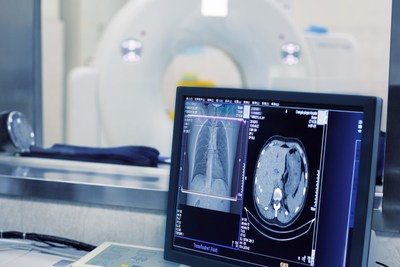BlackBerry Strengthens Medical Device Software Portfolio with QNX Hypervisor 2.2 for Safety
BlackBerry Limited (NYSE: BB) has launched the QNX® Hypervisor 2.2 for Safety, a safety-certified embedded hypervisor enabling the healthcare sector to expedite the delivery of secure medical devices. This product meets IEC 62304 Class C compliance and is certified for ISO 26262 ASIL D and IEC 61508 SIL3 standards. In response to increasing U.S. regulatory scrutiny over medical device security, this release aims to address market pressures and enhance cybersecurity in healthcare devices.
- Launch of QNX Hypervisor 2.2 for Safety improves market entry times for medical devices.
- Meets the highest functional safety standards, including IEC 62304 Class C.
- Supports safety, security, and reliability for embedded developers.
- None.
Insights
Analyzing...
New Release Helps Companies Deliver Safety-Certified Medical Devices to Market Faster
WATERLOO, ON, April 28, 2022 /PRNewswire/ -- BlackBerry Limited (NYSE: BB; TSX: BB) today announced the release of the QNX® Hypervisor 2.2 for Safety, the latest edition of the company's safety-certified, real-time embedded hypervisor product, designed to enable the healthcare industry to deliver safe, secure medical devices and applications to market faster.
In addition to being certified to the latest ISO 26262 ASIL D standard for automotive and IEC 61508 SIL3 for electronic systems, the QNX Hypervisor 2.2 for Safety is recognized with the highest functional safety standard for medical device software – IEC 62304 Class C compliance – from the independent auditors at TÜV Rheinland. The new release comes at a time of increased U.S. regulatory scrutiny following the revelation of numerous medical device security vulnerabilities as of late, with the Food and Drug Administration (FDA) releasing draft cybersecurity guidance on medical devices alongside the introduction of two new pieces of legislation – the Protecting and Transforming Cyber Health Care (PATCH) Act and the Healthcare Cybersecurity Act, all of which seek to proactively strengthen cybersecurity healthcare protections and protect lives.
"Medical device manufacturers operate in an environment filled with intense market pressures, stringent safety regulations and concerns about cyberthreats," said Grant Courville, Vice President, Products and Strategy at BlackBerry QNX. "BlackBerry QNX solutions are used in more than 50 types of medical devices and with the release of the QNX Hypervisor 2.2 for Safety, embedded developers have a software foundation that they can continue to count on which has been specifically designed for safety, security and reliability, enabling them to overcome many challenges at once."
"At a time when embedded device developers are in a race to adopt the latest technologies to meet feature demands while balancing mixed criticality functions, the safe interoperation of an array of operating systems has never been so important. The latest release of the QNX Hypervisor for Safety brings together pre-certifications across key industry standards including IEC 62304 Class C for medical with additional support needed for high-performance computing. This solution can help deliver responsive user experiences and better time to market while giving organizations confidence that they can achieve their safety goals," said Chris Rommel, Executive Vice President, IoT & Industrial Technology at VDC Research.
With the QNX Hypervisor 2.2 for Safety, medical device manufacturers and other embedded system suppliers are empowered with ultimate design flexibility and scalability to consolidate multiple systems with mixed criticality and different operating environments onto a single hardware platform, reducing both the initial development and long-term costs of ownership for a wide variety of embedded systems in industries such as industrial, automotive, transportation, heavy machinery, rail and robotics and more.
Medical device companies globally trust BlackBerry QNX software for a broad range of life-critical and graphics-rich medical applications including surgical robots, infusion pumps and pacemakers. BlackBerry QNX has a broad portfolio of embedded system software designed for mission-critical implementations, including the QNX® Hypervisor and the QNX® Neutrino® Real-time Operating System, in addition to middleware and development tools. Safety-certified variants of the QNX® OS for Safety are also available.
For more information on BlackBerry QNX products and engineering services for embedded systems, please visit BlackBerry.QNX.com.
About BlackBerry
BlackBerry (NYSE: BB; TSX: BB) provides intelligent security software and services to enterprises and governments around the world. The company secures more than 500M endpoints including 195M vehicles. Based in Waterloo, Ontario, the company leverages AI and machine learning to deliver innovative solutions in the areas of cybersecurity, safety and data privacy solutions, and is a leader in the areas of endpoint security, endpoint management, encryption, and embedded systems. BlackBerry's vision is clear - to secure a connected future you can trust.
BlackBerry. Intelligent Security. Everywhere.
For more information, visit BlackBerry.com and follow @BlackBerry.
Trademarks, including but not limited to BLACKBERRY, EMBLEM Design and QNX are the trademarks or registered trademarks of BlackBerry Limited, its subsidiaries and/or affiliates, used under license, and the exclusive rights to such trademarks are expressly reserved. All other trademarks are the property of their respective owners. BlackBerry is not responsible for any third-party products or services. |
Media Contact:
BlackBerry Media Relations
+1 (519) 597-7273
mediarelations@BlackBerry.com
![]() View original content to download multimedia:https://www.prnewswire.com/news-releases/blackberry-strengthens-medical-device-software-portfolio-with-qnx-hypervisor-2-2-for-safety-301535229.html
View original content to download multimedia:https://www.prnewswire.com/news-releases/blackberry-strengthens-medical-device-software-portfolio-with-qnx-hypervisor-2-2-for-safety-301535229.html
SOURCE BlackBerry Limited









